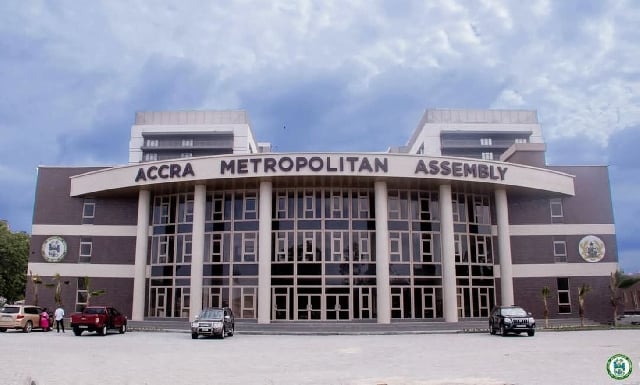The tenth anniversary of the June 3rd Twin Disaster in Accra, Ghana, serves as a stark reminder of the devastating consequences of climate change and the urgent need for proactive measures to mitigate its impact. The Accra Metropolitan Assembly (AMA), in partnership with youth-led environmental organizations, has planned a series of commemorative events centered around a climate-focused summit and a citywide sanitation campaign. The events aim to foster a renewed commitment to climate action and urban resilience, emphasizing the importance of collective responsibility in safeguarding the city’s future. The 2015 disaster, which claimed over 150 lives, underscored systemic failures in infrastructure and governance, highlighting the vulnerability of urban areas to extreme weather events. The planned activities seek to address these vulnerabilities and build a more resilient city.
The centerpiece of the commemoration is a climate summit themed “June 3rd, A Stern Reminder of Climate Inaction.” This summit, scheduled for June 3rd, 2025, will provide a platform for reflection on the 2015 tragedy and facilitate discussions on the critical need for climate action. The summit will bring together various stakeholders, including government officials, environmental experts, and community representatives, to analyze the underlying factors that contributed to the disaster and explore sustainable solutions for building a more resilient Accra. The summit is a collaborative effort with Youth Climate Advocates, operating under the umbrella of the Youth Climate Action Fund (YCAF). This partnership underscores the importance of youth engagement in addressing climate change and empowering young people to take the lead in climate resilience projects within their communities.
Complementing the summit, a series of targeted climate awareness campaigns will be rolled out in schools and communities. These campaigns aim to educate the public about the impacts of climate change and empower individuals to adopt sustainable practices in their daily lives. Stakeholder engagements will also be conducted to foster collaboration and ensure a coordinated approach to climate action. A major citywide clean-up exercise, spearheaded by YCAF micro-grantees, will further reinforce the importance of environmental responsibility at the grassroots level. This multi-pronged approach seeks to create a citywide movement towards climate resilience, fostering a sense of shared responsibility for Accra’s environmental well-being.
The citywide clean-up operation will focus on practical measures to improve sanitation and reduce the risk of flooding. Desilting gutters and removing plastic waste from markets and streets are key components of this initiative. By engaging local communities in these efforts, the AMA aims to instill a sense of ownership and responsibility for environmental hygiene. This hands-on approach not only addresses immediate sanitation challenges but also fosters long-term behavioral change, promoting a culture of environmental stewardship within the city. The clean-up operation serves as a tangible manifestation of the commitment to climate action, translating discussions and plans into concrete action on the ground.
Beyond the commemorative events, the AMA has outlined a comprehensive climate adaptation agenda, encompassing a range of measures designed to mitigate the risk of urban flooding. These include intensified maintenance of primary and secondary drains in flood-prone areas within Okaikoi South, Ablekuma South, and Ashiedu Keteke sub-metropolitan zones. Significant work has already been undertaken in high-risk areas like Korle Woko and London Market, demonstrating the AMA’s commitment to addressing the root causes of flooding. These efforts have yielded positive results, reducing the frequency of flooding during the rainy season and enhancing the resilience of these vulnerable areas.
Collaboration with the Hydrological Services Authority is another crucial aspect of the AMA’s flood mitigation strategy. Dredging the Odaw Channel, Accra’s main stormwater drainage system, is essential for ensuring the free flow of water during heavy rainfall. This proactive measure aims to prevent the accumulation of debris and sediment that can obstruct the channel and exacerbate flooding. The ongoing large-scale desilting of drainage basins under the Greater Accra Resilient and Integrated Development (GARID) Project further strengthens the city’s flood defenses. These infrastructure improvements, combined with enhanced maintenance practices, contribute to a more robust and resilient drainage system, better equipped to handle the challenges posed by climate change. The AMA is also working with the Urban Roads Department to upgrade select drainage systems, increasing their capacity to accommodate increased runoff caused by rapid urbanization. This forward-looking approach recognizes the evolving needs of the city and ensures that infrastructure development keeps pace with the challenges of a changing climate. By investing in these long-term solutions, the AMA is laying the groundwork for a more sustainable and resilient urban environment.
By commemorating the tenth anniversary of the June 3rd Twin Disaster with a focus on climate action, the AMA is demonstrating its commitment to learning from the past and building a safer future. The summit, sanitation campaign, and ongoing infrastructure projects represent a multi-faceted approach to addressing the challenges of climate change and building a more resilient city. The emphasis on youth involvement and community engagement underscores the importance of collective action in achieving these goals. The AMA’s call for shared responsibility resonates with the understanding that climate change requires a collaborative effort, uniting residents, local leaders, and stakeholders in a common purpose. This comprehensive strategy, combining immediate action with long-term planning, positions Accra to better withstand the impacts of climate change and create a more sustainable urban environment for future generations.


